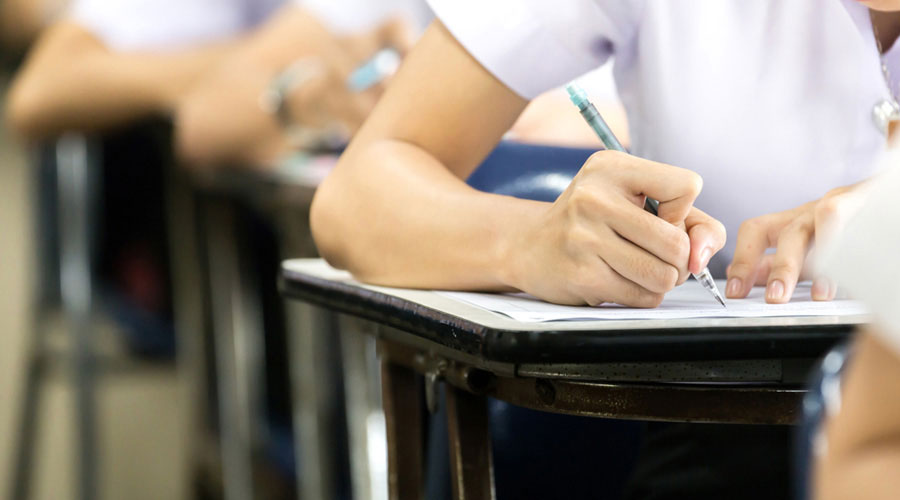The closure of schools, online teaching, the digital divide and loss of learning have figured as key concerns in the news reports on the effects of the raging pandemic on school education. Several responses have focused on seizing the opportunity to make the most of the pandemic, ushering in examination reforms and digital pedagogy. Here, we use the pandemic experience to examine the pressure to conform to middle-class notions of childhood and the contrasting imaginations of a teacher at work.
The idea of childhood, as it emerged in middle-class families in seventeenth-century Europe, is intertwined with the idea of innocence and dependence of the child, segregation from adults of the community, and protection. A child not dependent on adults — economically, socially and morally — is one ‘without childhood’ and causes social anxiety. In a historical twist, marking both colonial imprint and difference, the child in India bears the burden of contemporary middle-class obsession to make a mark in the competitive capitalist world through individual merit. The pandemic has been characterized by heightened monitoring, hovercraft parenting and regimentation of what children should do and what adult roles they should prepare for and how.
The middle-class adult gaze has intensified to bring both the child and the private school teacher under surveillance to mimic the customer-service provider relationship. Private schools purchased new products, trained teachers and reduced vacation to provide uninterrupted learning, akin to a good service provider attuned to the pulse of the market. These schools claim that their teachers teach well, engage children and bring creativity whether in synchronous or asynchronous mode. They respond to and find affirmation in middle-class parents’ insistence that learning must go on no matter what the crisis may be.
Multiple facets of the relationship between the private school and the parent community are emerging at a time when the ‘inequality virus’ has exacerbated existing disparities in education. First, both school and parents have reached an ideological consensus that the fee paid has to be well-earned. Second, private school officials have deplored the State regulation to not increase the fee or not charge a part of the fee during the pandemic and blamed the government for encouraging ‘delinquent parents’. Third, teachers have begun to mimic the school officials’ rhetoric that they ‘enjoy performing their role as teachers’ and do not desire ‘regular vacation time’ from work. This display of responsibility, investment and professional commitment articulated through the teachers’ agency simultaneously signals erasures as well as highlights the obfuscation of the wider context — the looming threat of unemployment and salary cuts. Fourth, the navigation of the new dimensions of design and transaction through the digital mode, pushed by the State and the corporations with an uncritical celebration of technology, obliterates the context of the teacher and the child. Teaching-learning now unfolds in a context-free situation with an imagination of uninterrupted, silent learning spaces in cramped urban homes of teachers and children. We have come to inhabit sanitized social bubbles guarded by middle-class boundaries that maintain a studied silence or, at best, make token concessions to the larger world of children in government schools. Fifth, schools, teachers and middle-class parents operate with a narrow conception of education reduced to learning. This is concomitant to the shift evident in the contemporary policy discourse, ranging from the World Bank to NGOs engaged in public-private partnerships at national and local levels.
Policies and practitioners argue in favour of ‘embedding social and emotional learning in the curriculum’, whereas learning is embedded in life itself. In a democratic society, learning unfolds when children participate in social life with an idea of purpose. Learning is not limited to PowerPoint presentations, quizzes, microworlds, lectures or to labouring to increase national productivity or the wealth of corporations. Rather, learning is in situ, for life’s own purpose, its joys, engagement, lived experiences and practice.
Before the pandemic, government schoolteachers were portrayed with derision in various media reports. During the pandemic, contrary to the popular perception, government schoolteachers returned to the workplace to be available to the community. They organized learning groups, sent worksheets home and called on each child, performed ‘Covid Warrior’ duties, reached out to the community and distributed rations. Contrastingly, private school teachers navigated the classroom and adopted the ‘culture of blended and virtual training’ to keep the children busy.
This narrative is punctuated with several omissions. The hierarchy within private schools is glossed over. There are concerns about the sustainability of low-fee private schools but not the destruction of livelihoods by the pandemic and the State’s policy responses. An eerie silence envelops the issue of government schoolteachers performing civic responsibilities as functionaries of the State even though these responsibilities not only impinge on their role and the time available for teaching but have also led to the loss of lives. Middle-class children’s experience of the ‘margins’ to learn ‘social responsibility’ and ‘community outreach’ by liaising with orphanages, widow-shelters and old-age homes recedes when a crisis comes knocking. Yet, autonomy is invoked to claim differences with government schools whose curriculum suffers implosions. But the show must go on for private schools.











